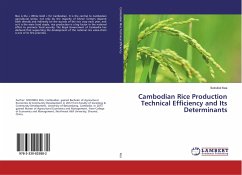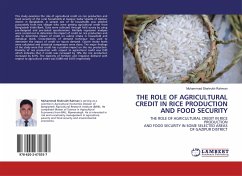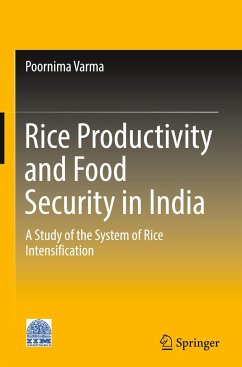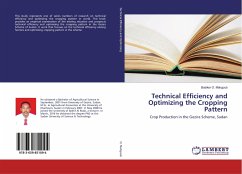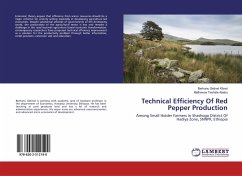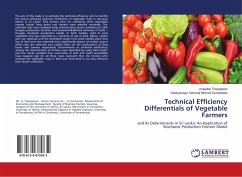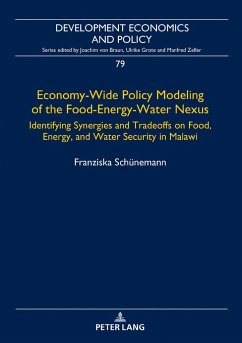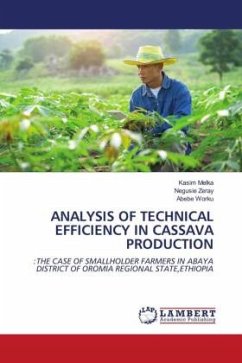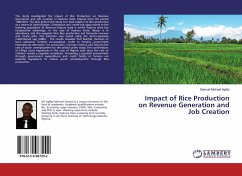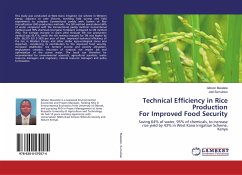
Technical Efficiency in Rice ProductionFor Improved Food Security
Saving 64% of water, 95% of chemicals, to increase rice yield by 43% in West Kano Irrigation Scheme, Kenya
Versandkostenfrei!
Versandfertig in 6-10 Tagen
36,99 €
inkl. MwSt.

PAYBACK Punkte
18 °P sammeln!
This study was conducted at West Kano Irrigation rice scheme in Western Kenya, adjacent to Lake Victoria, involving field surveys and field experiments to compare Conventional paddy with System of Rice Intensification (SRI) production methods. The SRI method saved about 64% of water compared with the Conventional paddy method. Conventional method used 95% chemicals (inorganic fertilizers) compared to SRI method (5%). The average increase in grain yield through SRI rice production method was 43.4 %, while the net revenue margins for SRI was higher by KSh. 58,275 (US $ 583) per acre of land. Imp...
This study was conducted at West Kano Irrigation rice scheme in Western Kenya, adjacent to Lake Victoria, involving field surveys and field experiments to compare Conventional paddy with System of Rice Intensification (SRI) production methods. The SRI method saved about 64% of water compared with the Conventional paddy method. Conventional method used 95% chemicals (inorganic fertilizers) compared to SRI method (5%). The average increase in grain yield through SRI rice production method was 43.4 %, while the net revenue margins for SRI was higher by KSh. 58,275 (US $ 583) per acre of land. Improved technical efficiency of the rice in Western Kenya, and other similar agro-ecological zones was important, considering its contribution to the improved food security, increased smallholder rice farmers' income and poverty alleviation, employment creation, reduction of national rice import bill and optimization of the scarce water. The book can therefore be recommended for environmental scientists, agricultural scientists, water resource managers and engineers, natural resource managers and policy formulators.



